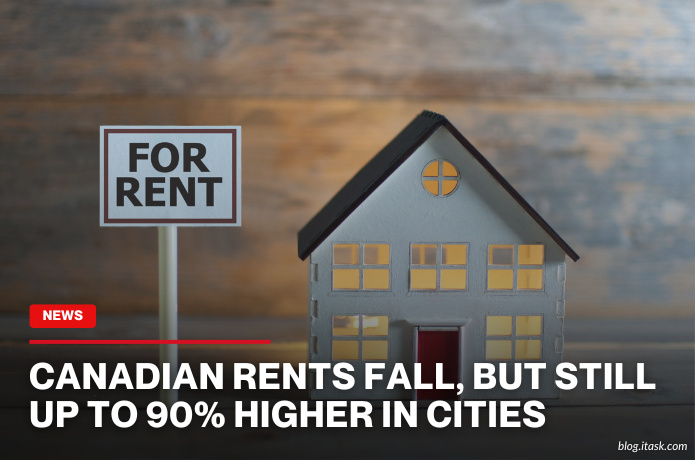Canadian Rents Fall, But Still Up To 90% Higher In Cities
Canadian Rents Fall, But Still Up To 90% Higher In Cities

Canadian rental prices have dipped in the first quarter of 2025, easing by about 1.9 percent compared to the previous quarter. That brought the average asking rent for a one-bedroom apartment in major cities down to roughly $1,555 per month. While any drop is welcome, it’s worth noting this is just a small correction after years of sharp increases.
Still, rents remain much higher than they were back in 2019. Across Canada’s 40 largest census metropolitan areas, average prices for one-bedroom units are now up nearly 50 percent since 2019, far outpacing inflation. In some cities, the increase hits as much as 90 percent—an eye-watering jump in just six years.
The biggest rises came in smaller Quebec cities like Sherbrooke, where rents ballooned by about 90.7 percent since 2019. Larger cities also saw strong growth. From 2019 to early 2025, Montreal rent climbed by about 57 percent, Ottawa by 47.8 percent, Calgary by 41.7 percent, and even Toronto, which had the slowest pace, rose about 9.1 percent.
Looking at year-over-year changes in early 2025, the picture is mixed. Ottawa saw rents rise around 6.4 percent, while Montreal stayed almost flat. Other big markets cooled a bit: Calgary fell by about 6.3 percent, Vancouver by 5.9 percent, and Toronto by 1.8 percent. That shows some slowing, but not exactly relief for renters.
Still, despite recent softening, the gap between rent and what most people can actually pay remains huge. Even after the recent drop, one-bedroom rents are still far above what a full-time minimum-wage earner could afford. The only city near affordability measures is Trois-Rivières at roughly $910 per month—but that still exceeds most basic cost-of-living thresholds.
In short, rents in Canada are falling—yes—but only slightly. Prices are still many times higher now than they were just a few years ago. For many renters in big cities, the pain remains real. Unless prices tumble further or incomes seriously catch up, affordability won’t be improving anytime soon.
